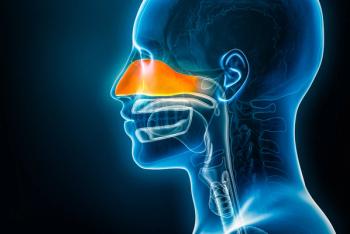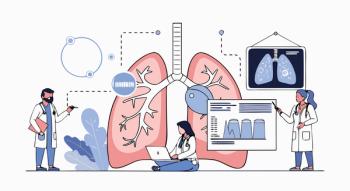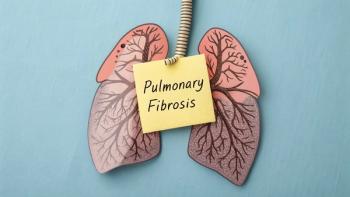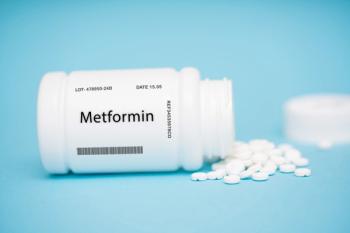
Phase 2a Safety Trial Shows Improvement in IPF Treatment
Early efficacy data from a phase 2a safety trial on the subject was presented during an oral session at the American Thoracic Society 2024 International Conference in May.
New research has concluded that patients with idiopathic pulmonary fibrosis (IPF) — an otherwise deadly and irreversible disease — showed significant improvements in lung function and reversal of lung fibrosis measures after 12 weeks of therapy with an investigational inhibitor of the Hedgehog signaling pathway.
Early efficacy data from a phase 2a safety trial on the subject was presented during an oral session at the American Thoracic Society 2024 International Conference in May.
Toby M. Maher, MD, PhD, director of interstitial lung disease in the Keck School of Medicine at the University of Southern California in Los Angeles, explained the novel oral agent dubbed ENV-101 is associated with improvements in forced vital capacity (FVC) and other measures of lung function and may be a disease-modifying therapy for IPF.
“This was an open label study of patients with a centrally confirmed diagnosis of idiopathic pulmonary fibrosis which was designed to assess the safety and generate preliminary efficacy data over 36 weeks for the ATIIR agonist buloxibutid,” Maher said. “The primary endpoint was safety. The key secondary endpoint was change in forced vital capacity over 36 weeks measured using standardized spirometers with central over reading. FVC is the efficacy endpoint of choice for regulatory approval studies in IPF in the U.S. and the rest of the world.”
The study was run in both the UK and India, where not all patients had access to reimbursed therapy for IPF.
“As such, the patients often did not have the option of standard of care therapy,” Maher said. “The 12- and 24-week assessments were put in as a reminder to investigators to consider whether patients now qualified for reimbursed treatment. As far as I am aware, only two patients transitioned to standard of care at their visits.”
Based on the researchers’ experience of running trials in IPF over the last 20 years, it was expected that patients with IPF lose FVC at a rate of approximately 160 - 220 mLs per year. However, the results with ENV-101 showed improvements.
“Even with the caveat that this was an open label study it was unprecedented to see a mean improvement in FVC in a cohort of IPF patients followed for this period of time,” Maher said.
During the 36-weeks, buloxibutid appeared to be safe and in general very well tolerated over the duration of the study. The one adverse event that was clearly attributable to the drug was hair loss. In most cases this was mild to moderate and only one patient discontinued treatment because of hair loss, Maher said.
Although neither the MMP-13 and TGFβ1biomarkers have been fully validated as markers of treatment response, Maher noted the changes in plasma levels in both biomarkers make biological sense and provide support for the changes seen in FVC during the trial.
Looking ahead, plans for a phase 2B RCT will be completed.
“If the improvement in FVC could be replicated in a randomized placebo controlled trial the buloxibutid would transform our current expectations for the treatment of IPF,” Maher said. “At present, we hope to slow disease decline. To genuinely improve lung function would be transformational.”
Newsletter
Get the latest industry news, event updates, and more from Managed healthcare Executive.























